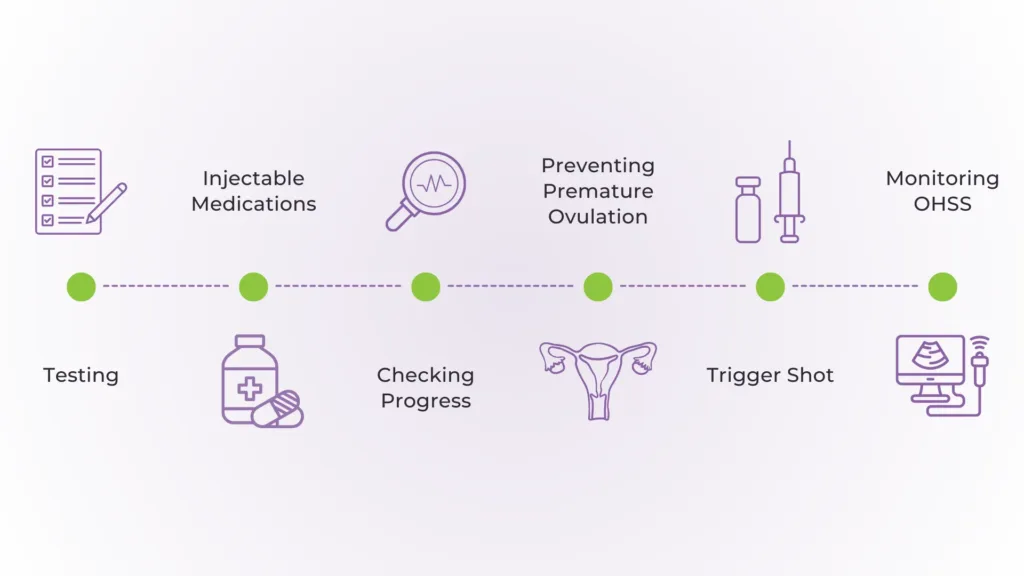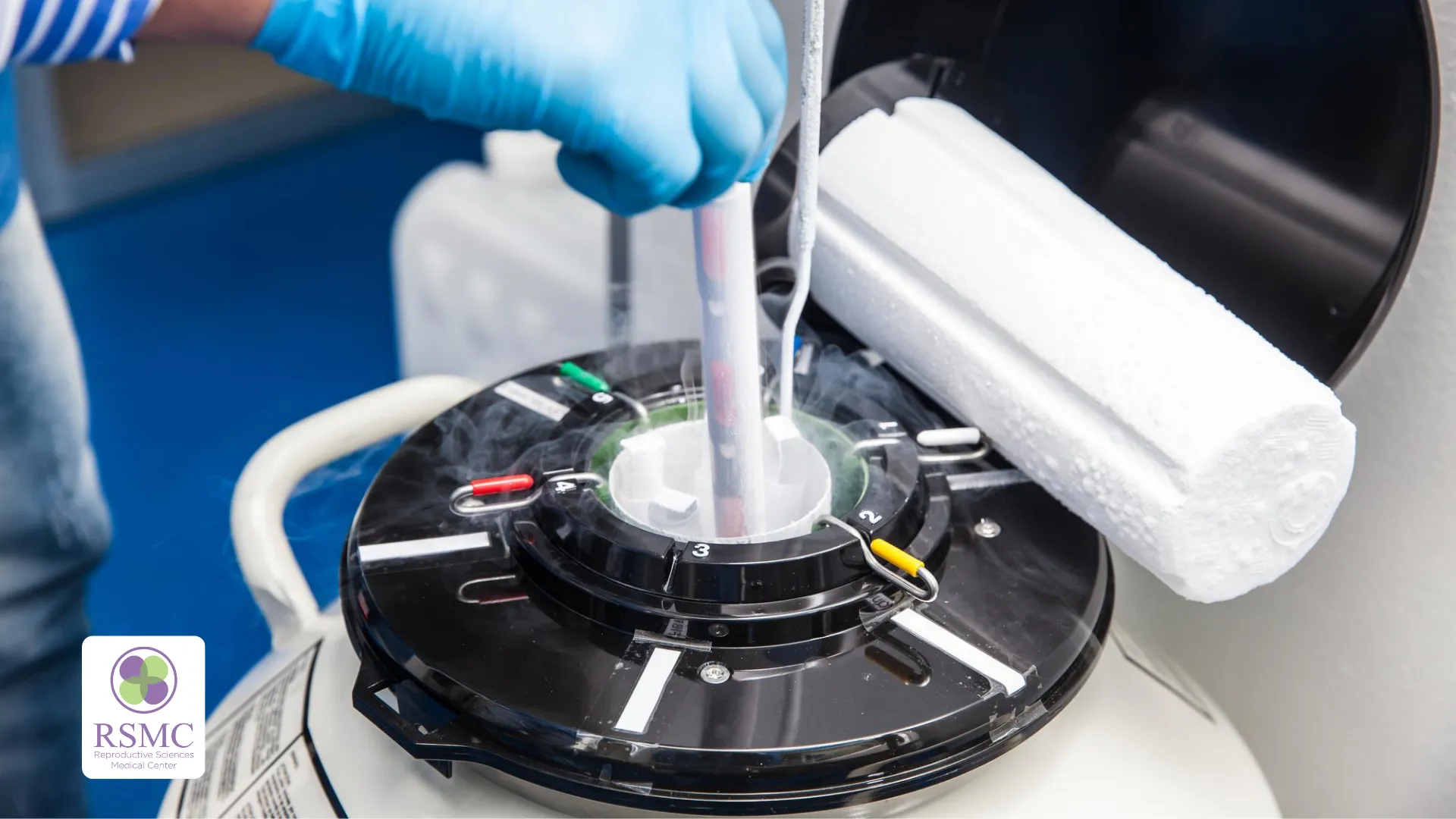IVF medications play a main role in stimulating the ovaries to produce multiple eggs during an IVF cycle. These medications are essential for achieving the best outcomes during IVF treatment. By using specific fertility drugs, the process provides a greater chance of fertilization and embryo development. Understanding how these medications work and their potential effects is key to a successful journey.
IVF Purpose and Process
In vitro fertilization (IVF) is a fertility treatment that has helped countless individuals and couples achieve their dream of parenthood. It offers a solution for those facing challenges such as infertility, advanced maternal age, genetic disorders, or medical conditions that affect natural conception. Whether for heterosexual couples, same-sex couples, or single individuals, IVF provides a pathway to building families when traditional methods are not viable.
A typical IVF cycle involves several carefully coordinated steps, including stimulating the ovaries, retrieving eggs, fertilizing them in a laboratory setting, and transferring the resulting embryo into the uterus. These steps are designed to increase the chances of a successful pregnancy.
The process involves injectable medications and fertility drugs to prepare the ovaries, stimulate the growth of multiple eggs, and regulate hormone levels. These medications guarantee the body is ready for each stage of the IVF process.
Choosing a reputable fertility clinic is important to the success of an IVF journey. Skilled specialists and advanced technology make sure that every step is handled with precision. A trusted clinic also provides personalized care, tailoring the treatment plan to suit the individual’s unique needs and circumstances.
Importance of Medications in the IVF Process
Medications are for preparing the body for the different stages of IVF treatment. They guarantee the ovaries respond appropriately, creating the conditions needed for a successful cycle. Regular monitoring by a fertility specialist is essential to track the body’s response and adjust dosages if needed. This careful approach helps maintain balance, optimize results, and avoid risks.
Ovarian Stimulation: What It Is and Why It Matters
Ovarian stimulation is a major phase in the IVF process that prepares the body for egg retrieval. Carefully monitored and tailored to individual needs, ovarian stimulation is one of the most important steps for a successful IVF cycle. This is a controlled process that encourages the ovaries to produce multiple follicles, each of which contains an egg. By stimulating the ovaries to produce more follicles, the likelihood of retrieving a good number of mature eggs increases. Without ovarian stimulation, the body would naturally release only one egg per cycle, limiting the chances of conception. The goal of this process is to increase the number of healthy eggs while maintaining safety and minimizing risks.
Types of IVF Medications Used in Ovary Stimulation
- Gonadotropins: including Follicle Stimulating Hormone (FSH) and FSH and Luteinizing Hormone (LH) Combination
- Hormone Antagonists: medications that block or inhibit the action of specific hormones in the body
- Trigger Shots: Human Chorionic Gonadotropin (hCG)
- Birth Control Pills
The Ovarian Stimulation and IVF Medication Process

Ovarian stimulation is an essential part of the IVF cycle, relying on specialized medications to increase the chances of successful fertilization and embryo development. Fertility medications play different roles at each stage, and working closely with your fertility team is important. Below is a detailed breakdown of the process:
Testing and Preparation
Before starting stimulation, complete tests are made to check hormone levels and ovarian function. Blood tests and transvaginal ultrasounds are commonly performed to evaluate the condition of the ovaries. In some cases, birth control pills are prescribed to align the menstrual cycle and prepare the body for stimulation.
Starting Injectable Medications
The stimulation phase begins with injectable medications like gonadotropins, which include follicle stimulating hormone (FSH) or a combination of FSH and luteinizing hormone (LH). These hormones stimulate the ovaries to produce multiple follicles, increasing the number of eggs available for fertilization. Popular brands such as Gonal-F and Menopur are often used during this stage. Patients self-administer these injections daily under precise guidance from their fertility specialist.
Checking Progress
Frequent monitoring helps to check that the stimulation is proceeding effectively. The fertility team conducts blood tests and ultrasounds to track follicle growth and verify that hormone levels stay within the optimal range. They adjust dosages based on the individual’s response to the medications.
Preventing Premature Ovulation
To prevent the eggs from being released too early, hormone antagonists are introduced during the stimulation phase. These medications suppress the natural surge of luteinizing hormone (LH) released by the pituitary gland, making sure that the eggs remain in the follicles until they are mature and ready for retrieval.
Trigger Shot Administration
The fertility specialist administers a trigger shot, often containing human chorionic gonadotropin (hCG), once the follicles reach the ideal size. This injection mimics the body’s natural LH surge, indicating the follicles release mature eggs. The timing of this injection is crucial, as it must occur 34 to 36 hours before egg retrieval.
Monitoring for Ovarian Hyperstimulation Syndrome (OHSS)
During the stimulation process, your fertility team monitors closely for signs of ovarian hyperstimulation syndrome (OHSS). This rare condition can cause symptoms like abdominal pain, bloating, and fluid retention. Proper monitoring and medication adjustments reduce the risk and ensure patient safety.
IVF Medication Side Effects

Like any treatment, IVF medications can cause side effects that vary from person to person. Understanding these potential reactions helps patients manage symptoms and stay informed throughout their IVF cycle.
Common Side Effects
IVF medications can cause side effects as the body adjusts to the treatment. Common symptoms include:
- Bloating and abdominal pain.
- Mild bruising at the injection site.
- Mood swings and headaches.
- Nausea or breast tenderness.
Some patients may experience ovarian hyperstimulation syndrome (OHSS), a condition where the ovaries overreact to fertility drugs.
Managing Side Effects
Monitoring hormone levels and adjusting medication doses can reduce side effects. Drinking plenty of fluids and avoiding heavy physical activity can help manage mild symptoms. For severe cases, such as OHSS, immediate medical attention is necessary.
IVF medications are at the heart of a successful IVF cycle. They stimulate follicle growth, regulate hormone levels, and prepare the body for fertilization and implantation. While side effects may occur, working closely with your fertility team ensures proper management experience. With the right approach, these medications significantly improve the chances of achieving your dream of parenthood.

























